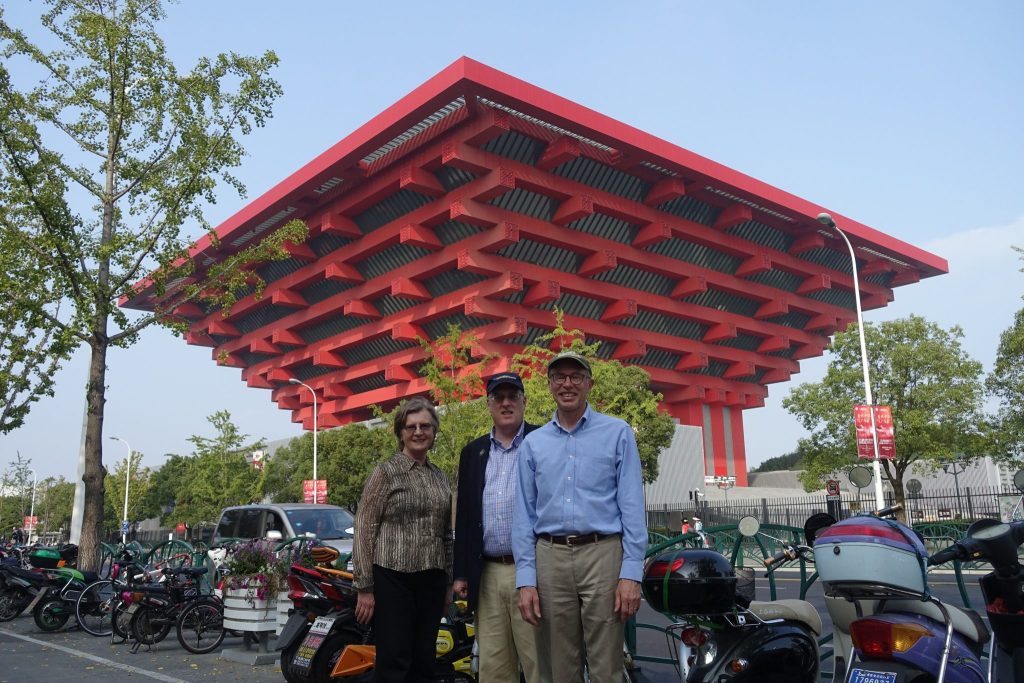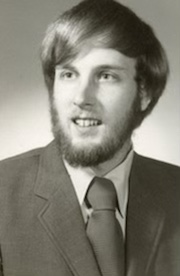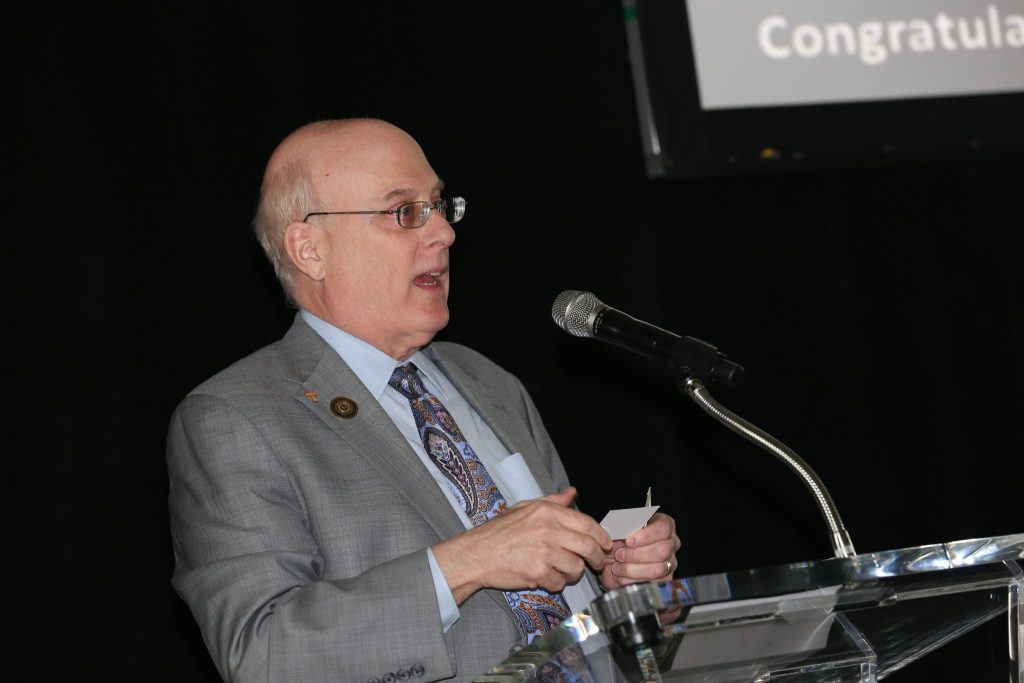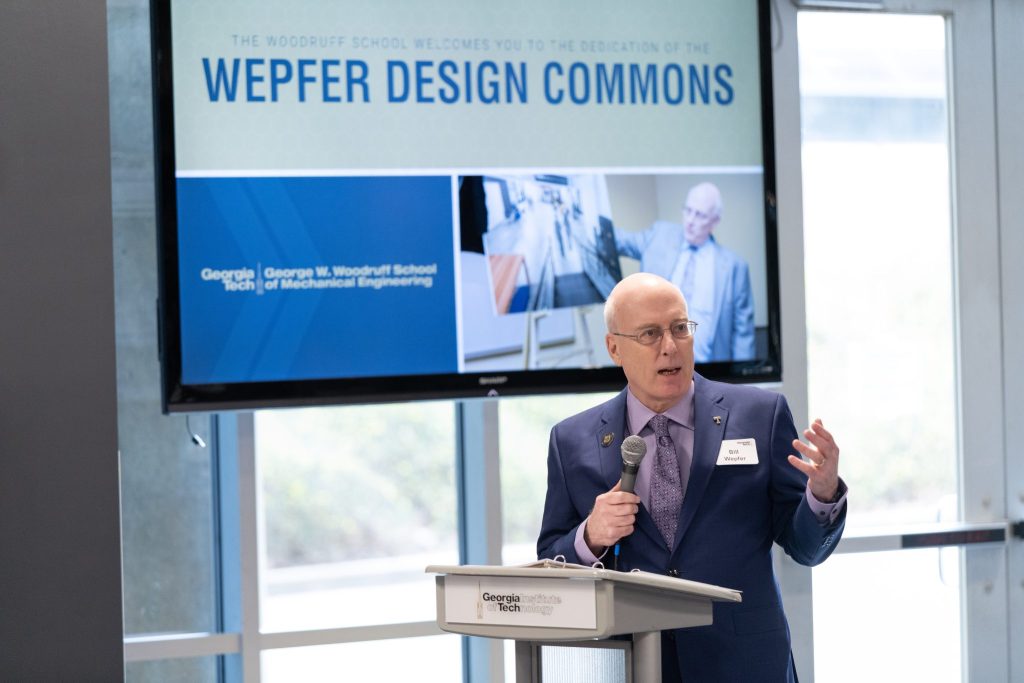A career in academia was not always obvious to Bill Wepfer. As he continued his education in Mechanical Engineering through a Ph.D., however, it became clear that it was a well-suited career choice for him. He enjoyed the ability to set his own schedule, interact with young adults “who are thinking about new ideas, whether it’s in research or education” and, most importantly, the ability to have an impact on his students and faculty.
While Wepfer’s work in heat transfer, combustion and energy systems has been published, it’s his influence on others that he believes is the most important aspect of his life’s work. “Not to minimize any contributions on research,” Wepfer said, “but I really do think it’s the impact you have on individual people that is what’s lasting.”
Wepfer retired from academia in April 2018 after almost 40 years of service at Georgia Institute of Technology’s Woodruff School of Mechanical Engineering. He started at Georgia Tech as an assistant professor, holding various positions including associate chair for graduate studies in Mechanical Engineering and vice provost for distance learning and professional education. Wepfer became department chair of the Woodruff School of Mechanical Engineering in 2008, a position he held until his retirement. After retirement, he received the professor emeritus title at Georgia Tech.
In fall 2020, he was sworn in as ABET President-Elect after volunteering in various positions since 1994. He started as a program evaluator through the American Society of Mechanical Engineers (ASME) before serving as a team chair and later on the Board of Directors.
Family First
Wepfer’s focus in his professional and personal life is the same: the people around him. He is passionate about his family — his wife, Lynne, as well as his daughter, son-in-law and three grandchildren who he loves to visit in Washington, D.C. As an avid reader, Wepfer subscribes to the Washington Post to keep up to date with the city in which his grandchildren live.
Wepfer and Lynne have also been diving into their genealogy to learn more about their families. They recently completed a “compendium” including about 8,000 photographs and documents depicting Wepfer’s family, and now they are starting to focus on researching Lynne’s family. “I guess as you get a little bit older, you realize that you want to be able to pass that information on to your grandkids,” Wepfer said. “We constantly find ourselves saying, ‘Oh my God, I wish one of our parents were still with us because then we could ask.’”
Wepfer Design Commons
When Wepfer became department chair of the Woodruff School of Mechanical Engineering at Georgia Tech in 2008, he focused on allowing students to discover and then grow their passions. He led the creation of a more flexible undergraduate curriculum that allows students to choose an elective in each fundamental subject area of Mechanical Engineering, in addition to one required course. This also allowed more room for students to pursue minors, which was difficult with previous curriculums.
“One way in which that program really helped us in the area of diversity and equity is we found, almost overnight, it helped our retention of female students,” Wepfer said. The most common minor for those female students was industrial design. So, Wepfer and the department made the decision to bring the “maker movement” to Georgia Tech. They created Flowers Invention Studio, Montgomery Machining Mall, Electronics Lab and IDEA Lab for students to create their own designs, explore new passions or improve their skills.
These spaces now make up Wepfer Design Commons, which was officially dedicated in January 2020 in honor of Wepfer’s impact on his students and the Mechanical Engineering field.
Wepfer attributes his leadership skills as department chair largely to reading as he enjoys nonfiction, particularly biographies and memoirs about historical figures. He learned from their mistakes and successes and used them to develop his own leadership skills. “As you read nonfiction memoirs and biographies, you realize very quickly: nobody is perfect. But you see their evolution and their growth, and you know the impacts they had were really big,” Wepfer said.
Leading ABET
While Wepfer has contributed a lot of time of effort to ABET over the years, he has also taken away a lot from his time as a volunteer. One benefit of his time spent on campuses while serving as a program evaluator and team chair was the opportunity to connect with prospective graduate students thinking of attending Georgia Tech. If the prospective student went to a school he visited, Wepfer let him or her know of the connection.
Visiting colleges and universities also helped Wepfer see what other programs were doing, which he said improved his capabilities as department chair. Like the historical figures he read about, he could see what was and was not working in other programs to improve or avoid within his own department at Georgia Tech.

Wepfer started his term as ABET President after the pandemic had already started, presenting different challenges than most other presidents and presidents-elect before him faced. His main priority when he became president was to keep programs going while also protecting the safety of ABET volunteers and staff. “I think we’ve done a phenomenal job on both fronts and it’s really due to the dedication and the quality of the staff and volunteers at ABET,” Wepfer said.
Now in the second half of his term as ABET President, Wepfer hopes to be able to get back to in-person domestic visits, should the pandemic allow. The board is also currently in the “pre-planning” phase to update the strategic plan. The updated strategic plan will have a greater focus on diversity, equity and inclusion, which Wepfer hopes his successor S. K. Ramesh will continue to focus on when his term ends this fall.




